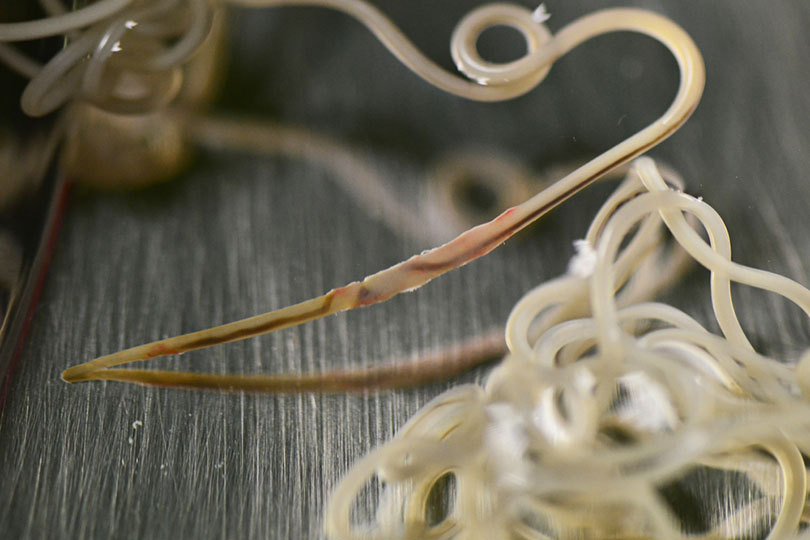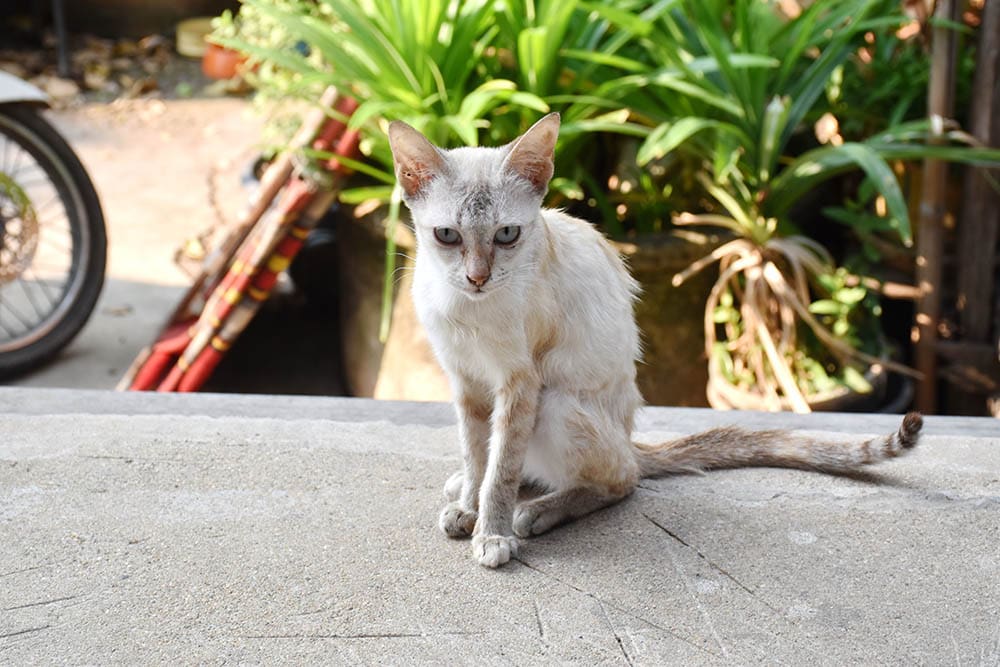
Though both dogs and cats are susceptible to heartworm disease, the problem is not as common in cats as in dogs. Heartworm disease is transmitted by mosquitos, and the disease causes worms to develop in the heart, lungs, and blood vessels associated with these organs.
Continue reading below to learn five important things you should know about heartworm disease in cats.
The 5 Things to Know About Heartworm Disease in Cats
1. How Do I Know if My Cat Has Heartworm Disease?
Many cats will be asymptomatic for heartworm disease. This means that they show absolutely no abnormal signs. Others cats may have vague, non-specific signs, such as anorexia, weakness, lethargy, and slightly increased respiratory rate and effort.
Some cats will show no signs of illness until they have acute respiratory and/or cardiac issues and die on their own. Other cats will show no signs, and then suffer from HARD, short for Heartworm Associated Respiratory Disease. HARD can appear as coughing, difficulty breathing, collapse, pale gums, or sometimes sudden death.

2. How Common is Heartworm Disease in Cats?
Cats unfortunately are not tested as frequently as dogs. While the American Heartworm association recommends testing every 12 months for both dogs and cats, this is not routinely done in cats. Because of this, the prevalence of heartworm disease in cats is not really known.
One of the reasons we more routinely test dogs over cats is that dogs are natural hosts to heartworms, while cats are not. This means that, in dosg, heartworms can live, grow into adults, breed, and produce offspring. Because cats are not a natural host, it means that an infected cat will often only have one to a few adult worms living in their body. Heartworms cannot breed and produce inside cats. Dogs can have hundreds of adult worms causing damage, breeding, and producing more baby heartworms to perpetuate the cycle.
We do know that heartworm disease has been diagnosed in cats in all 50 states. Because it is spread by mosquitos, keep in mind that both indoor and outdoor cats can be affected—who hasn’t had a pesky mosquito get into their house before?
3. How is Heartworm Transmitted?
As mentioned above, mosquitos are the main player in heartworm disease. Adult female heartworms living in a natural host (dog, fox, coyote, wolf) will produce baby heartworms called microfilaria. These microfilaria will circulate in the bloodstream and can sometimes be seen under a microscope in a drop of blood.
When a mosquito bites an animal with microfilaria, these will then mature into larvae over 10–14 days. After this maturation period, the mosquito can then bite another animal, passing these infective larvae into a susceptible animal, such as your dog or cat.
After this bite, it takes approximately six months for this infective larvae to mature into an adult heartworm. This is why many veterinarians will not test a new puppy or kitten for heartworm until they are at least six months old, more routinely starting at the age of one year old. This is also why it’s extremely important to keep your pet on heartworm prevention year round. If your cat or dog gets bit in the summer by a mosquito, and you stop prevention, the six-month maturation period can still occur.
Adult heartworms can live for up to 2–3 years in cats, and 5–7 years in dogs.

4. Can Heartworm Disease in Cats Be Prevented?
Yes! Prevention is the best option for heartworm disease in your cat. However, before you go out and buy the first thing you see on the shelf, a couple words of warning:
5. Can Heartworm Disease in Cats Be Cured?
Unfortunately, no. Once a cat is infected with heartworms, even if severely ill, there is no treatment to cure them. The immiticide and antibiotic therapy recommended in heartworm affected dogs cannot be used in cats. Therefore, appropriate prevention with a prescribed medication from your veterinarian is the best option.
Some heartworm-positive cats will spontaneously clear the heartworms. However, these heartworms may still have caused permanent damage to the heart, lungs, and vessels. Your veterinarian will walk you through all of the options if your cat is diagnosed.
Conclusion
The number of cats infected with heartworm disease in the United States is not known. Because cats are not natural hosts, they do not become infected as frequently as dogs. However, once cats are infected, there is no cure. Many cats will show only vague signs of illness, or no signs of illness until they are in severe respiratory distress or dead. The best treatment is getting your cat on an FDA-approved preventative through your veterinarian.
Featured Image Credit: vitrolphoto, Shutterstock






